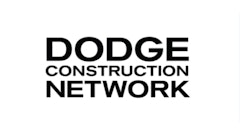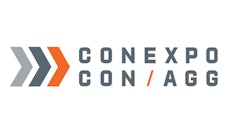
In recent years, data has become a rapidly growing asset to the construction industry. Though historically the industry has lagged in technical adoption, in the years since the pandemic there has been enormous growth in construction technology and data analytics. However, with this increase in data use, the industry needs to step up its protections, especially around data privacy.
Data Privacy Dictates The Who, What And Where Of Data
Data protection is about the tools and processes used to keep data safe and protected . It can be divided into two main categories: data security and data privacy. Data security involves keeping information safe from threats. Data privacy is about governance, overseeing how data is collected, stored and used.
Data privacy is especially important in collaborative industries like construction, where sharing project data is common practice. Between subcontractors, auditors and other third parties, client data passes through a lot of hands over the course of a job, but knowing who is responsible for keeping it safe and secure is very important.
Since they aren’t cyber security experts, contractors rely on their selected tech vendors to provide the appropriate data protections. However, data is not something to take lightly. If a contractor chooses a vendor with poor data privacy protocols, not only are they risking their own data to exposure, but client data as well. Therefore, it is vital that construction companies conduct due diligence when researching vendors that will be handling sensitive information.
Third-Party Validation: Walk The Walk And Talk The Talk
It can be daunting to have to select a trustworthy vendor, especially if you don’t have a tech background. Fortunately, there are tools used throughout the tech industry to help demonstrate a vendor’s trustworthiness to non-tech-oriented clients. One of the most common is third-party validation.
Third-party validation acts as a kind of fact-check for businesses. It demonstrates that a business’s claim has been reviewed by an outside party, often a governing body like an industry association, and has met a set of standards. For example, LEED certification demonstrates that a building has met a certain level of environmental standards.
In data privacy, a third-party validation shows that a company has a thorough understanding of the sensitivities surrounding data and that stringent processes have been put in place to ensure that collected data remains private and secure. There are several different data-privacy validations, the most common ones being HITRUST, ISO and SOC.
Proof To Customers You’ll Go That Extra Mile
There is no law that requires companies to receive a certification for data-privacy in the US. Many companies that have one went through the process voluntarily. Receiving such a certification is no easy lift. It requires company-wide participation, significant financial resources, and months of preparation to qualify. However, by doing so, an organization demonstrates to customers that they understand the importance of data protection and are willing to go above and beyond to provide such protections.
Our world has become much more accessible through the use of data, making everything faster and more convenient than ever. But without proper oversight, that accessibility can quickly turn into vulnerability. As high-profile data leaks and cases of undisclosed data collection become more common, individuals and businesses alike are becoming more protective of their data. Partnering with vendors who are third-party certified in data protection is a great way to demonstrate credibility while building trust between yourself and your customers.



















